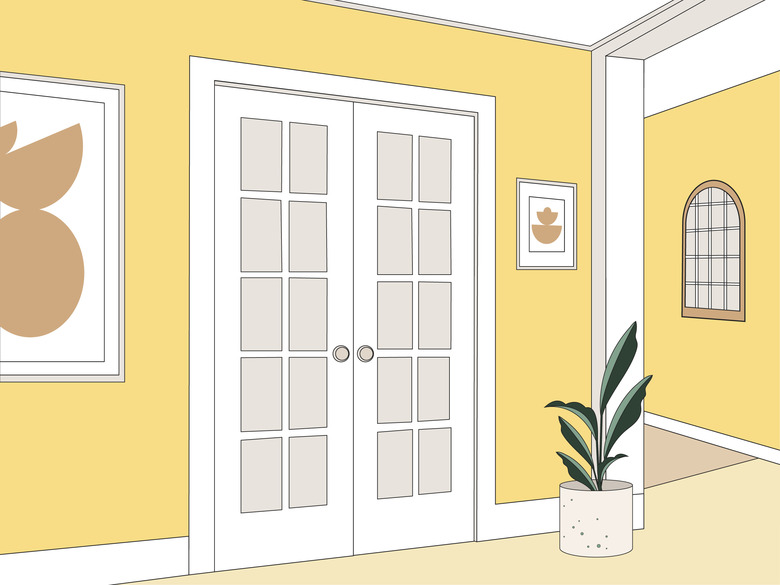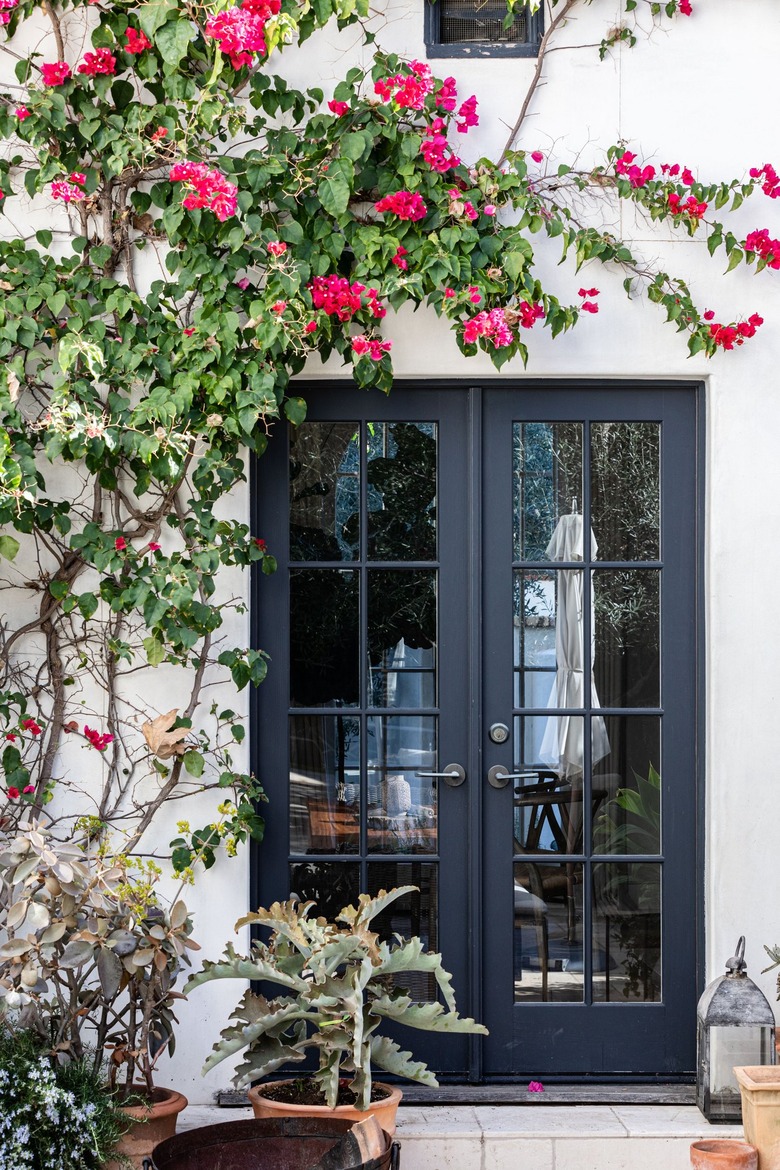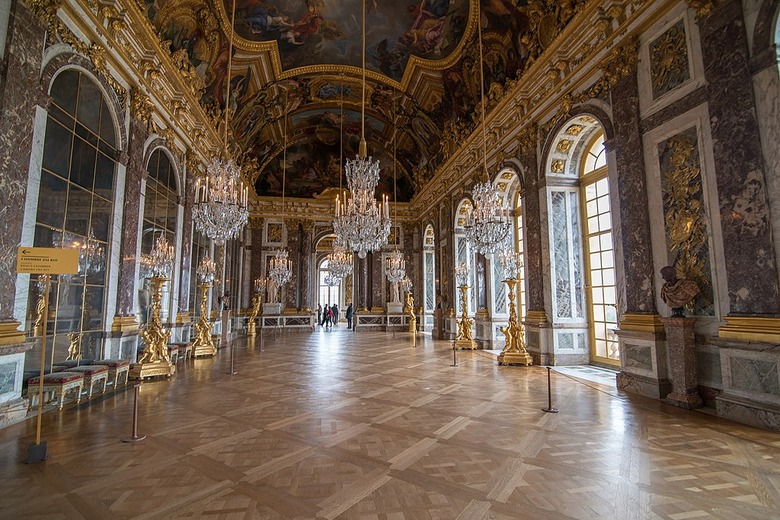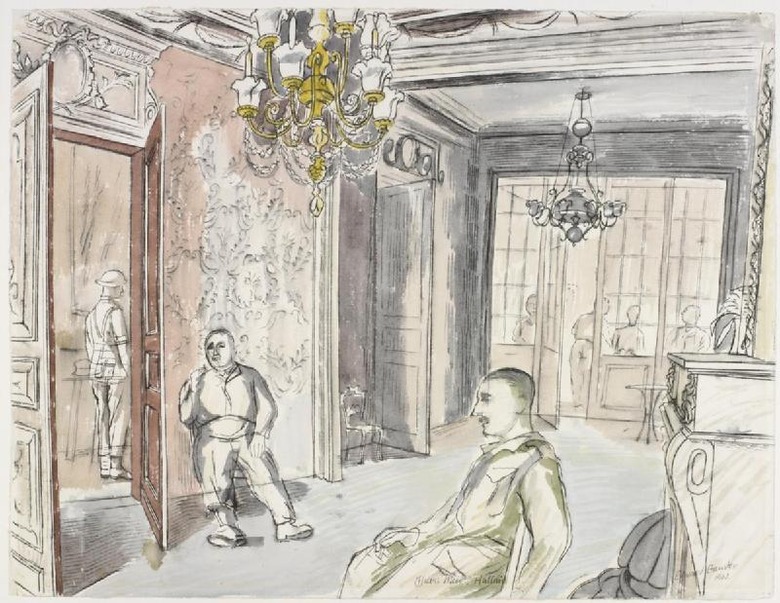Did You Know? French Doors Were NOT Invented By The French
There's something about opening and walking through a set of French doors that makes for a glamorous, Disney Princess-esque entrance. Yet, French doors were actually invented to be as functional as they are fashionable.
What inspired French doors?
It all started with the French window, which, like the French fry, didn't actually originate in France. According to the Westbury Windows & Joinery company, the idea first blossomed in Renaissance Italy, where architects were inspired by Roman and Greek design. Specifically, in the 16th century, Renaissance windows were high and rectangular in such a way that they could double as doors leading out onto a balcony.
At the time, this type of window was a novel idea brought about by advances in glass-making technology. "Until the late Middle Ages, windows were made largely of squares of oilcloth, canvas, or even oiled paper — glass was very rarely used outside of churches or ecclesiastical buildings," writes Joan DeJean in The Age of Comfort: When Paris Discovered Casual — and the Modern Home Began. "In France, glass came into wider use only in the Renaissance. By the mid-17th century, glass windows had become the norm in France, though they were a far cry from what we know now."
When were the French introduced to this idea?
The French were introduced to these door-like windows during the Italian Wars — a time when European powers like France and Spain sought control over Italy — which lasted from 1494 to 1559 (65 years!). Following their victories, the French returned home with various spoils and one such treasure was the concept of the sizable window, which they put a twist on by utilizing multiple window panes between bars in the structure.
When did French doors become popular?
The seventeenth century saw French doors becoming increasingly popular in France because, according to custom window company Renewal by Andersen of Austin, they provided extra natural light during a time when electricity wasn't available. In fact, the French call the doors "porte-fenêtre," which literally means "door-window."
What is the difference between French doors and windows?
Yet, while French doors can double as windows, there can be specific distinctions between the two. Westbury Windows & Joinery reports that French windows tend to be narrower and open outward without being separated by a mullion (a vertical bar between the panes of glass in a window). Both are meant to offer expansive views of the outside world and were traditionally made of wood and iron, but can now be designed with aluminum and polyvinyl chloride (PVC).
So if you're interested in having French doors in your own home, know that you'll be able to make a glamorous entrance while being beautifully lit by natural light.



